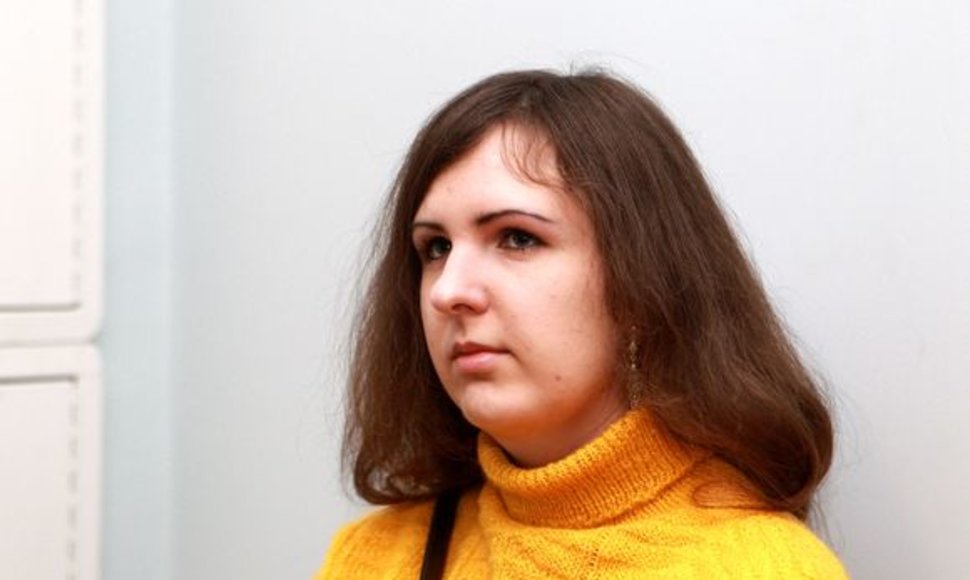She has not yet been asked whether she pleads guilty.
"The SSD provoked me verbally and administered psychotropic drugs, the department coordinated things with the Russian Embassy that I should be allowed to travel," Kusaitė, who is turning 23 on Tuesday, said at the hearing.
She denied having wanted to detonate herself over the death of her Chechen boyfriend – she said five years had passed between his death and her detention.
"Did he really die? Was he really a Chechen and not a security agent?" Kusaitė told the court.
As a teenager, Kusaitė met with a young man from Chechnya who later allegedly died.
"I was pressurized by security officers between ages of 13 and 20. Arnoldas Baranauskas, Lina Sirin (…)," she listed the officers who attempted to influence her. In her words, the individuals supported her financially and dictated their conditions.
At the Monday hearing, Kusaitė read her testimony from a sheet of paper. She said the State Security Department had been influencing her since early teenage years, attempting to take her away from her family and transform her into a radical Muslim.
She lived in an apartment rented by the State Security Department, which also paid the rent, telephone pre-paid cards and covered other living costs.
Kusaitė said she had been subjected to physical violence of the officers who kicked her after the detention in October of 2009. She said she had been battered by officers of the Russian Federal Security Service on 8 April 2010.
"Three Russian-speaking individuals were involved, they were interrogating me," Kusaitė said, adding one of the officers sexually harassed her.
Kusaitė was detained in October 2009 on charges of setting up an organized group for a terrorist attack and planning to detonate herself in a strategic object in Chechnya.
After more than nine months of detention, she is currently free on a written pledge not to leave the country.
Kusaitė's accomplices, Chechen siblings Apti and Aishat Magmadovs, were sentenced last December to six and two years in prison, respectively.
According to data available to Lithuanian prosecutors, Kusaitė had made contacts with Islamic groups and was preparing for a terrorist act in Chechnya, a republic in North Caucasus striving for independence from Russia. Russian prosecutors say Magmadov and his sister Aishat used mobile phone and Internet to persuade Kusaitė into joining the gang and detonating herself in a public place in Russia.












